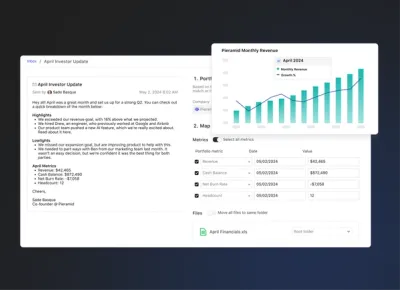
In today's fast-paced business world, startups are constantly on the lookout for tools and technologies that can streamline their operations, enhance their productivity, and set them on a path to success. A significant driver of this efficiency is the adoption of Software as a Service (SaaS) tools. These cloud-based applications have not only made high-end software accessible to businesses of all sizes but have also introduced a level of agility and flexibility previously unseen. With the digital transformation accelerated by the pandemic, the reliance on SaaS tools has surged, reflecting the market's exponential growth. According to Statista, the SaaS market has shown remarkable growth, estimated to be worth approximately 197 billion dollars in 2023 and projected to reach 232 billion dollars by 2024. Moreover, the integration of Artificial Intelligence (AI) into SaaS has marked a revolutionary change, making these tools smarter and more intuitive. AI's role in automating complex processes, providing actionable insights, and enhancing user experiences has made its inclusion in SaaS tools a game-changer, paving the way for innovative solutions that cater to the dynamic needs of startups.
Related Resources:
What is a SaaS tool?
At its core, a SaaS tool is a cloud-based software that provides users with access to applications over the internet, eliminating the need for internal infrastructure or hardware. This model offers several advantages, particularly for small businesses and startups, including scalability, cost-effectiveness, and accessibility. Tools like Slack, Zoom, Asana, Trello, and Google Workspace epitomize the value of SaaS by offering solutions that enhance communication, project management, and collaboration without the hefty upfront costs typically associated with traditional software. These tools are not just applications; they are catalysts for efficiency, enabling startups to focus on their core business strategies while managing operational tasks with greater ease and flexibility.
Related Resource: The SaaS Business Model: How and Why it Works
Team Communications
At the core of every strong startup team is strong communication. As more teams move to a remote or hybrid environment, the importance of communication has been heightened. Teams that are intentional about communication while working remotely will set themselves up for success.
Learn more about the most popular SaaS team communication tools below:
1. Slack
Slack has become synonymous with startups. Remote or not, startups are leveraging Slack to communicate with their team members. With enhanced permissions and a solid suite of integrations, Slack (or a similar messaging tool) has almost become table stakes for modern communication. Learn more about Slack here.
2. Zoom
Going hand in hand with the explosion of remote work has been Zoom. Now a verb in everyday life — Zoom has transformed the way startups work. Zoom is an easy-to-use video conferencing tool that is generally the standard. Most attendants will be familiar with Zoom and are comfortable getting on a Zoom call. Learn more about Zoom here.
Project Management and Workflows
One of the main differentiators of a startup is the ability to move quickly. In order to best build products, launch campaigns, and move quickly, startups need a tool in place to stay organized. Project management and workflow tools can be key to staying on top of ongoing projects and development.
Related resource: 7 Essential Business Startup Resources
Learn more about the most popular project management and workflow tools below:
3. Asana
Asana has been a popular project management and workflow tool amongst startups for years. As they put it, “Teams use Asana to easily connect people, processes, and cross-functional teamwork in one place. Yep—more efficiency, without the meetings.” Learn more about Asana here.
4. Trello
Trello is another popular project management tool amongst startups. As the team at Trello puts it, “Collaborate, manage projects, and reach new productivity peaks. From high rises to the home office, the way your team works is unique—accomplish it all with Trello.” Learn more about Trello here.
5. Google Workspace
Google Workspace is an all-in-one tool that startups commonly leverage. Workspace is a suite of popular tools that can help teams with everything from email to organization to meetings. As the team at Google puts it, “Google Workspace business solutions seamlessly integrate everything you and your team need to get anything done, all in one place.” Learn more about Google Workspace here.
Marketing
In the realm of digital marketing, the right SaaS tools can be the difference between a successful campaign and a missed opportunity. Startups, in particular, need to leverage these tools to optimize their marketing strategies, engage with their audience, and analyze the performance of their campaigns. Solutions like SEMrush, HubSpot, Mailchimp, SurveyMonkey, and Hotjar offer a suite of features tailored for digital marketing, from SEO analysis and inbound marketing to email campaigns and user feedback. These tools empower startups to navigate the complexities of digital marketing, providing them with the insights and automation needed to reach their target audience effectively and efficiently.
6. SEMrush
SEMrush, a cornerstone in content marketing for startups, now integrates advanced AI features, enhancing its all-in-one toolkit for SEO, social media marketing, and beyond. This platform not only facilitates SEO, content marketing, competitor research, PPC, and social media marketing from a single platform but now also leverages AI to offer smarter insights, content optimization, and more efficient strategy planning. As SEMrush evolves, it continues to provide comprehensive support for digital marketing efforts, making it even easier for teams to execute effective campaigns with precision and creativity. Learn more about SEMrush here.
7. HubSpot
HubSpot is one of the largest sales and marketing tools for startups. HubSpot covers everything from a sales CRM to email marketing to landing page creation. As the team at HubSpot puts it, “HubSpot’s CRM platform has all the tools and integrations you need for marketing, sales, content management, and customer service. Each product in the platform is powerful alone, but the real magic happens when you use them together.”
HubSpot has recently also significantly upgraded its platform with the use of AI and enhanced Sales Hub features. These updates include AI Assistants to streamline content creation and customer engagement, AI Agents for automating customer service, and AI Insights for predictive analytics. Additionally, new Sales Hub capabilities focus on efficient prospecting, advanced lead management, AI-powered sales forecasting, and deeper LinkedIn integration to improve sales productivity and customer connections. These advancements underscore HubSpot's commitment to leveraging AI to provide comprehensive solutions across marketing, sales, and customer service, helping businesses thrive in the digital age. Learn more about HubSpot here.
8. Mailchimp
Mailchimp is a popular tool to help startups distribute marketing emails. The robust email marketing tool scales well with startups as well. As the team at Mailchimp puts it, “Win new customers with the #1 email marketing and automation brand* that recommends ways to get more opens, clicks, and sales.”
Mailchimp has also recently launched a series of new features and updated powered by AI such as an Email Content Generator, to streamline the creation of targeted email campaigns. These advancements, aimed at small businesses and startups, encompass improved analytics, advanced segmentation, e-commerce automations, and SMS marketing, facilitating a more integrated approach to digital marketing strategies. Learn more about Mailchimp here.
9. SurveyMonkey
SurveyMonkey, now enhanced with AI, streamlines survey creation and form building for marketers. Its new "Build with AI" feature uses GPT-3 technology and SurveyMonkey's rich data history to let users quickly generate surveys from simple descriptions. Alongside, SurveyMonkey Forms offers an intuitive platform for creating various web forms, equipped with customizable templates and integration options. These tools provide fast, efficient ways to gather insights, making SurveyMonkey a strategic asset for data-driven marketing decisions. Learn more about SurveyMonkey here.
10. Hotjar
Hotjar is a comprehensive tool for understanding user behavior and feedback on websites. It offers features like flexible dashboards, sentiment analysis, and new integrations to help marketers and product teams gain deep insights. With Hotjar, users can customize dashboards to track key metrics, utilize AI for sentiment analysis of survey responses, and leverage integrations for more impactful campaigns. These capabilities make Hotjar an essential tool for improving website usability, increasing conversion rates, and enhancing overall user experience. Learn more about Hotjar here.
Social Media Management
In today's digital age, social media is a battleground where brands vie for attention, engagement, and loyalty. Social media management tools such as Sprout Social, Hootsuite, Buffer, and Canva are indispensable for startups aiming to establish a strong online presence. These platforms offer a centralized dashboard for managing multiple social media accounts, scheduling posts, analyzing engagement data, and creating visually appealing content. By simplifying the social media management process, these tools allow startups to maintain a consistent brand voice across platforms, engage with their audience in real time, and measure the impact of their social media strategies.
11. Sprout Social
Sprout Social is a dedicated tool to help companies level up their social media marketing. As the team at Sprout Social puts it, “Our all-in-one social media management platform unlocks the full potential of social to transform not just your marketing strategy—but every area of your organization.” Learn more about Sprout Social here.
12. Hootsuite
Hootsuite is a versatile social media management platform that offers a range of features to help users effectively manage their online presence across different platforms. Its key features include publishing and scheduling posts, social media analytics, AI content creation, optimal posting times, social listening, engagement tools, and more. These tools are designed to improve social media strategies through efficient scheduling, insightful analytics, and enhanced audience engagement. Hootsuite's integrations with popular social networks and tools like Canva enhance its utility. Learn more about Hootsuite here.
13. Buffer
Buffer evolved significantly in 2023, introducing 26 new features, including an AI Assistant integrated with ChatGPT, helping users generate new posts, repurpose existing ones, and create endless new ideas. It supports various social channels like Facebook, Instagram, LinkedIn, and more, offering tools for publishing, analytics, and engagement. These developments make Buffer a powerful tool for social media management, allowing for organized content, streamlined collaboration, and efficient scheduling across multiple platforms. Learn more about Buffer here.
14. Canva
Canva offers design tools that anyone can use — regardless of their design skills. Canva can help marketing teams create assets for their marketing site, email campaigns, social media, and more. As the team at Canva puts it, “Canva makes it easy to create professional designs and to share or print them.” Learn more about Canva here.
Web Development Tools
For startups, establishing a strong online presence is non-negotiable, and web development tools play a crucial role in achieving this. Tools like Zapier, GitHub, and Firebase offer powerful functionalities for building, deploying, and managing web applications. These platforms facilitate collaboration among development teams, streamline workflows, and offer scalable solutions for managing databases, backend services, and integrations. By leveraging these web development tools, startups can expedite their development processes, ensure high-quality outputs, and maintain flexibility to adapt to market demands, ultimately leading to a robust and reliable online presence.
15. Zapier
Zapier is a powerful automation tool that connects different web applications to automate repetitive tasks without the need for coding. It's highly valued in web development for its ability to streamline workflows and enhance productivity by linking over 3,000 apps, such as databases, development tools, and project management services. This facilitates seamless integration and data exchange between services, making it easier for developers to focus on more complex tasks and project innovation. Learn more about Zapier here.
16. Github
GitHub is a leading web development platform that enables collaboration on code, project management, and software development. It's renowned for hosting open-source projects, facilitating version control with Git, and offering features like pull requests, issues tracking, and GitHub Actions for automation. This makes GitHub indispensable for developers looking to work together on projects, share code, and integrate with various development tools, thereby streamlining the software development process and fostering innovation within the global developer community. Learn more about GitHub here.
17. Firebase
Firebase is a comprehensive platform developed by Google to help build, improve, and grow web and mobile applications. It offers a wide range of tools and services, including hosting, real-time databases, authentication, analytics, and machine learning capabilities. Its ability to provide a backend-as-a-service saves developers time and effort in setting up servers and writing backend code, making it an excellent tool for rapidly developing high-quality applications with scalable infrastructure. Firebase integrates seamlessly with other Google services and supports both web and mobile platforms, enhancing the development workflow and user engagement. Learn more about Firebase here.
Accounting and Financial Tools
Startup leaders need to have a pulse on where their business is at financially. To achieve this, most startups need to adopt a bookkeeping or accounting solution. You might also consider hiring a professional firm for assistance in this area. The tools below are designed to integrate seamlessly with your existing systems, providing a comprehensive overview of your financial statements and ensuring that you have the insights needed to make informed decisionsl. Learn more about popular accounting and financial tools below:
18. Quickbooks
Quickbooks is the defacto name in accounting and financial software. Quickbooks offers an array of products and tools to help with all aspects of accounting and finance. As put by the team at Quickbooks, “Easily track income, expenses, and more with accounting software designed for all kinds of businesses.” Learn more about Quickbooks here.
19. Xero
Xero is a cloud-based accounting software tailored for small to medium-sized businesses, offering features such as invoicing, payroll, and bank reconciliation. It simplifies financial management with real-time reporting and compatibility with over 800 third-party apps. Xero's user-friendly platform allows for seamless collaboration between business owners and accountants, ensuring efficient financial oversight. Learn more about Xero here.
Investor Relationship Management
Leveraging the resources around you is a surefire way to help grow your business. For many founders, their investors can be a great source to help with fundraising, hiring, and developing your business strategy. Many times, investors have networks and resources that founders can tap into. To best do this, founders need to have a way to regularly communicate with their investors to build their relationships and trust. Learn more below:
20. Visible
If you’re a startup that has taken on outside funding it is important to have a game plan in place to report and communicate with your investors. This will not only improve your odds of raising follow-on funding but will allow you to lean on investors for help with hiring, strategy, and more.
Raise capital, update investors, and engage your team from a single platform. Try Visible free for 14 days.
Related Resource: How Startups Can Use an Investor Matching Tool to Secure Funding
Search Engine Optimization
Marketing teams running robust content programs may require dedicated tools to effectively manage their strategies. For instance, teams focusing on organic search as a key channel would benefit from tools designed to enhance and streamline their content efforts.
Learn more about the most popular search engine optimization tools below:
21. Ahrefs
Ahrefs is an all-in-one analytics tool to help marketers track their organic search efforts. As the team at Ahrefs puts it, “Ahrefs is everything you need to rank higher & get more traffic.” Learn more about Ahrefs here.
22. Moz
Moz is another tool that helps marketers with all aspects of their content marketing efforts. As the team at Moz puts it, “SEO software and data to help you increase traffic, rankings, and visibility in search results.” Learn more about Moz here.
Data & Analytics
As the adage goes, “You can’t improve what you don’t measure.” Having a way to track and monitor key metrics and data is a must for startups. This might look different for companies at different stages. For example, a more mature product or startup might require more advanced analytics and tracking than a startup with no customers yet.
Related Resource: Our Ultimate Guide to SaaS Metrics
Learn more about the most popular data analytics tools below:
23. Google Analytics
Google Analytics is a must-have for any startup that leverages its website to attract new customers. With Google Analytics you’ll be able to slice and dice different website data to see how visitors are interacting with your content. Learn more about Google Analytics here.
24. Segment
Segment is a leader in customer data. With their suite of tools and APIs, startups can leverage Segment to collect and analyze data about their customers. As the team at Segment puts it, “Segment collects events from your web & mobile apps and provides a complete data toolkit to every team in your company.” Learn more about Segment here.
Human Resources and Payroll
On top of recruiting and hiring top talent, startup leaders need a way to manage their human resources and payroll. Luckily, countless SaaS tools can help leaders with everything from benefits to payroll.
Learn more about the most popular human resource and payroll tools below:
25. BambooHR
BambooHR is an all-in-one tool that helps startups with all aspects of human resources. BambooHR comes with tools to help with everything from hiring to onboarding to compensation. As the team at BambooHR puts it, “Create a great place to work at every stage of growth with all-in-one software from BambooHR.” Learn more about BambooHR here.
26. Gusto
Gusto is a leader in payroll solutions. Gusto’s bread and butter is payroll and benefits for startups. As the team at Gusto puts it, “A well-supported team is the key to a successful business. With Gusto’s easy-to-use platform, you can empower your people and push your business forward.” Learn more about Gusto here.
27. ADP
ADP has been in the payroll and HR business for a while. As the team at ADP puts it, “Fast, easy, accurate payroll and tax, so you can save time and money.” Learn more about ADP here.
Get the Funding Your Startup Needs with Visible
Startups are in competition for two resources — capital and talent. Having a system in place to attract and close capital for your business can help speed up a fundraise so you can focus on what matters most, building your business.
Related Resource: The Understandable Guide to Startup Funding Stages
Find investors for your startup, share your pitch deck, nurture them with updates, and track your conversations all from one platform — give Visible a free try for 14 days here.




